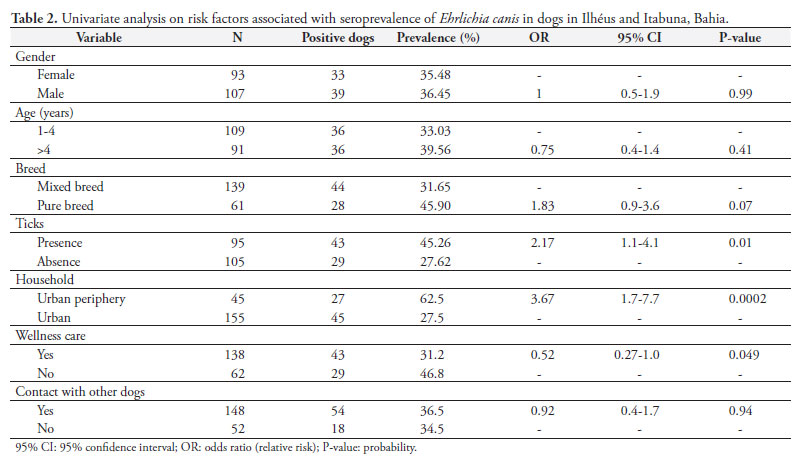The aim of this work was to study the clinical disorders and risk factors of canine ehrlichiosis in Ilhéus and Itabuna, Bahia, and compare different diagnostic methods. Blood samples were collected from 200 dogs. Each dog was clinically examined. A questionnaire was used to evaluate the risk factors. The blood samples were analyzed using the Dot-ELISA test; hematometry, platelet counts and searches for morulae on blood smears were performed. Nested PCR was carried out on 50 serologically positive samples and 50 negative samples. Three positive PCRs were sequenced. Thirty-six percent were serologically positivity and 5.5% from blood smears. The animals were anemic and thrombocytopenic. Presence of ticks and living in areas on the urban periphery were considered to be risk factors (p < 0.05). Nested PCR identified 11 positive dogs of which nine were serologically positive and two were negative. The DNA sequencing was consistent with the presence of Ehrlichia canis.
Ehrlichia canis; epidemiology; ELISA; Nested PCR





